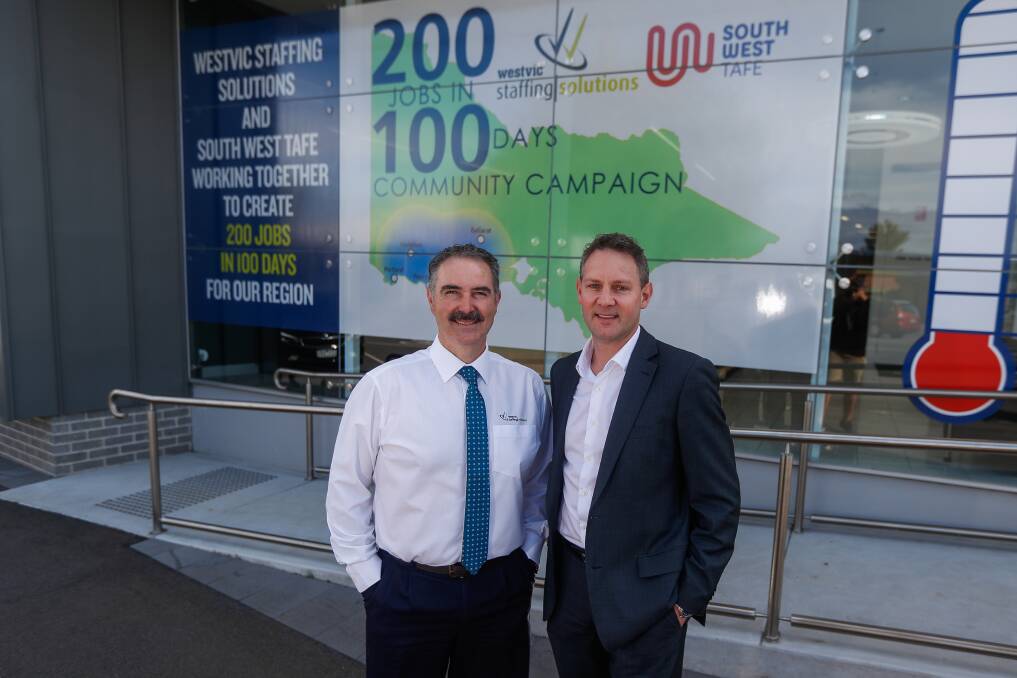
A campaign to create hundreds of jobs in just 100 days has helped drive down youth unemployment over the past four years.
Subscribe now for unlimited access.
or signup to continue reading
Westvic Staffing Solutions in conjunction with South West Tafe has set a target of creating another 200 jobs in 100 days for this year’s campaign, mirroring last year’s goal.
The project will be launched on Thursday at City Memorial Bowls Club between 5pm and 7.30pm. About 20 different employers will be there and young people have been urged to turn up to help fill the 60 traineeships and apprenticeships already up for grabs.
The apprenticeships and traineeships will last between 12 and 48 months and cover dozens of trades and vocations, from the more traditional plumbing and electrical to business and finance.
When the project started four years ago with a drive to create 100 jobs in 100 days, youth unemployment in the region was as high as 16 per cent, South West Tafe chief executive officer Mark Fidge said.
Westvic chief executive officer Dean Luciani said the latest figures showed youth unemployment had fallen to 7.5 per cent.
Four years ago, youth unemployment in the south-west was in the top 10th percentile in Victoria and now it is about two percentage points below average.
“I’d like to think we’ve had a significant impact on those youth unemployment rates,” Mr Luciani said.
He said while they were not the only ones creating jobs in the region, the campaign had helped increase the profile around employing young people.
Mr Luciani said the campaign had united the business community and had also attracted strong support from community leaders including the local government areas of Warrnambool, Moyne, Southern Grampians, Glenelg and Colac Otway.
“The next 100 days is a really exciting time for the region,” he said. “The business community is fantastic.
“They’ve just embraced the whole concept. They get it. There’s that willingness to invest in young people. They say it takes a village to raise a child. It takes a lot of people to get somebody to the point where they can make that transition from school to work and then a member of a community.”
Mr Fidge said in a region with stagnate population growth, the campaign prioritised retaining young people.
“All too often we’re seeing youth leave the region, and once they leave they do come back at some point, not all of them,” he said.
“So getting the 200 is a real bonus because in the past, without it, I reckon we would have lost a fair chunk of the 200 to outside of the region.”














